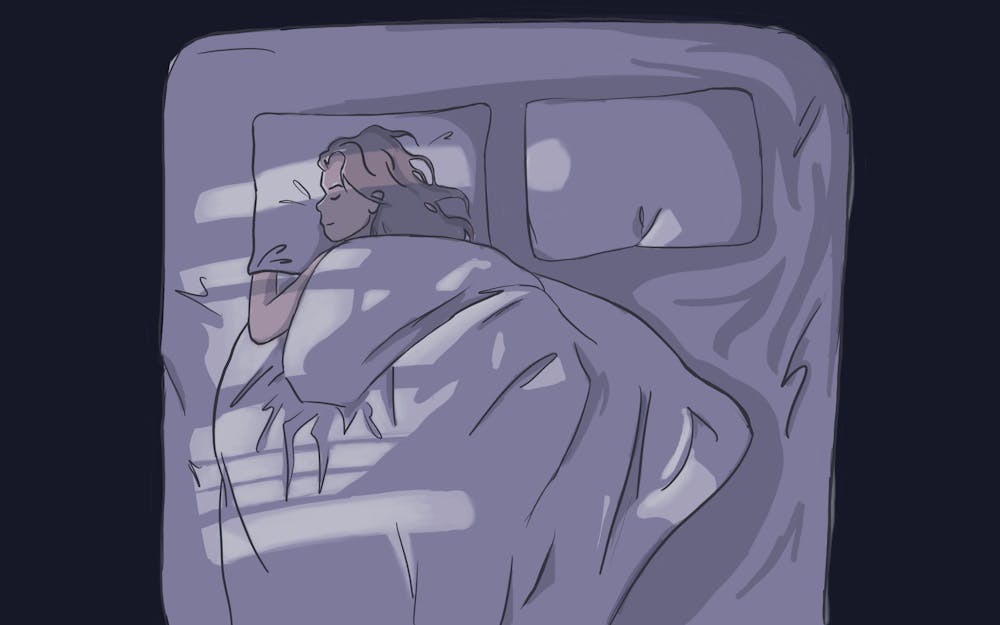Getting quality sleep often gets overlooked during the summer months. Unlike a weekday during the school year, every day feels like a weekend and can be filled with late nights with friends, staying on your phone or watching TV. It's okay to occasionally pull off these late nights, but the lack of a consistent sleep schedule can have significant implications.
A good night's sleep is essential for college-aged students. According to the Sleep Foundation, young adults need seven to 10 hours of sleep each night. This seems simple enough, but it isn’t only about the number of hours you sleep, it is also about the quality. “Quality sleep matters too,” the Sleep Foundation wrote, “and it is possible to get the hours that you need but not feel refreshed because your sleep is fragmented or non-restorative.”
Sleep fragmentation is when you experience interruptions in your sleep throughout the night. Because of this, you may feel tired throughout the day. Sleep fragmentation can be caused by distractions like your phone, sleep disorders, or even the temperature of your room.
Quality of sleep is my primary issue in the summer months. I get the recommended hours of sleep, but not all of it adds up to quality sleep. My schedule is all over the place. Sometimes I stay up late and sleep in until noon. Some days I wake up early and then fall back to sleep. My phone is by my bed, which can cause distractions. It doesn’t make for a solid night of rest.
Sleep deprivation is an issue that often gets overlooked and affects many portions of our lives, big or small. An infographic from John Hopkins Medicine shows that sleep deprivation can impact our mood and our memory, lead to weight gain, make us three times more likely to catch a cold and increase our risk for high blood pressure and diabetes. Poor sleep can also play a factor in depression. Along with these health issues, it can also affect our ability to perform basic tasks such as driving.
A lack of sleep has been shown to have a correlation to a weakened immune system and nervous system. When you aren’t getting enough sleep your body doesn’t produce as many infection-fighting antibody cells. The nervous system is affected because neurons in the brain become tired which makes it hard to do basic things.
Determining a good middle ground for enough sleep is an issue that some of us can run into sometimes. While it is typically recommended that adults get seven to 10 hours of sleep per night, the hours of sleep you get a day is specific to you.
It depends on factors such as your schedule, your circadian rhythm which is your body's internal clock, sleeping disorders and other environmental factors. Medical News Today says that it’s best to fall asleep a few hours after dark and wake up a few hours after the first sunlight.
Additionally, sometimes it's difficult for people, including myself, to fall asleep before a particular time of night. Sometimes it’s as simple as not being able to fall asleep till midnight because you aren’t tired yet. Other reasons may be having a 24-hour work schedule, like if you work in a medical field, or if you’re in school and need to stay up late and work on homework.
There are some things you’re able to do to increase your quality of sleep. The CDC recommends going to bed and waking up at a similar time each day, keeping your bedroom quiet and cool, avoiding electronic devices at least 30 minutes before bed, and avoiding large meals and caffeine at night.
The summer may seem like a time when you can slack on sleep, but a good snooze is essential all year round, no matter how busy you are. We should enjoy the extra time we have now that school is out, but continuing a regular sleep schedule is still vital for us and our health.
Jack Davis (he/him) is a sophomore studying journalism.






